| Date | Text | |
|---|---|---|
30 Nov 1969

Parc naturel régional de Camargue |
Parc naturel régional de Camargue (biology) Establishment of Parc naturel régional de Camargue in the south of France. |
|
30 Nov 1969
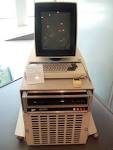
Xerox PARC |
Xerox PARC (computer science) Xerox PARC computer laboratory opens in Palo Alto, California. |
|
30 Nov 1969

Conway's Game of Life |
Conway's Game of Life (mathematics) Conway's Game of Life cellular automaton devised by John Horton Conway. |
|
30 Nov 1969

Kurt Gödel |
Kurt Gödel (mathematics) Mathematician Kurt Gödel allows circulation of his ontological proof of the existence of God. |
|
30 Nov 1969

GIM mechanism |
GIM mechanism (physics) Prediction of the GIM mechanism, requiring the existence of a charm quark, by Sheldon Glashow, John Iliopoulos and Luciano Maiani. |
|
30 Nov 1969

Henri Tajfel |
Henri Tajfel (psychology) Henri Tajfel develops his minimal group paradigm, a constituent of social identity theory. |
|
30 Nov 1969

Konrad Lorenz |
Konrad Lorenz (psychology) Studies in Animal and Human Behavior, Volume I is published by Konrad Lorenz. |
|
30 Nov 1969
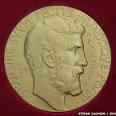
Fields Prize in Mathematics |
Fields Prize in Mathematics (awards) Fields Prize in Mathematics: Alan Baker, Heisuke Hironaka, Sergei Novikov and John Griggs Thompson |
|
30 Nov 1969

Turing Award |
Turing Award (awards) Turing Award – James H. Wilkinson |
|
30 Nov 1969

Eleanor Maguire |
birth Eleanor Maguire Eleanor Maguire, Irish-born neuropsychologist. |
|
01 Jan 1970

Unix time |
Unix time (computer science) Unix time begins at 00:00:00 UTC. |
|
04 Jan 1970

1970 Tonghai earthquake |
1970 Tonghai earthquake (earth sciences) 1970 Tonghai earthquake: An earthquake of 7.7 Richter magnitude scale occurs in Tonghai County, Yunnan province, China, on the Red River fault. |
|
05 Jan 1970
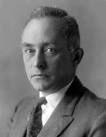
Max Born |
death Max Born Max Born (b. 1882), physicist and recipient of the Nobel Prize in physics in 1954. |
|
02 Feb 1970

Bertrand Russell |
death Bertrand Russell Died 2 Feb 1970 at age 97 (born 18 May 1872). (3rd earl) Bertrand Arthur William Russell was a Welsh mathematical logician, analytical philosopher and writer. He worked to establish foundations of mathematics and developed contemporary formal logic. He is known for Russell's paradox (concerning the set of all sets that are not members of themselves), his theory of types, and his contributions to the first-order predicate calculus. He believed in logicism, the theory that mathematics was in some important sense reducible to formal logic. With Alfred Whitehead, he co-authored Prinicpia Mathematica (1910). Russell is regarded as one of the most important logicians of the twentieth century. He was active in social and political campaigns, and advocated pacifism and nuclear disarmament. The Nobel Prize for Literature was awarded to Russell in 1950. |
|
11 Feb 1970
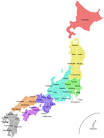
Japan |
Japan (astronomy and space ) Japan becomes the fourth country to launch a satellite into orbit. |
|
31 Mar 1970
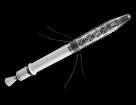
Explorer I |
Explorer I (astronomy and space ) Explorer I reentry (after 12 years in orbit) |
|
11 Apr 1970
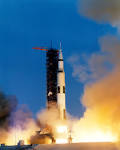
Apollo 13 |
Apollo 13 (astronomy and space ) Apollo 13 ill-fated space mission launched |
|
13 Apr 1970

Apollo XIII rescue |
Apollo XIII rescue In 1970, an explosion during the Apollo 13 mission led to one of the most spectacular rescue missions in US space history. The explosion aboard the Odyssey spacecraft left the crew stranded for four days more than 200,000 miles from Earth. An oxygen leak forced the Apollo 13 astronauts to abandon ship and return in lunar module. Against all odds, the three astronauts and thousands of others brought the capsule safely back to Earth. The astronauts were Fred Haise, Jack Swigert, and Commander Jim Lovell, and the mission was to have made the third manned landing of the moon. |
|
15 Jul 1970
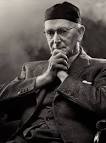
Francis Arthur Freeth |
death Francis Arthur Freeth Died 15 Jul 1970 at age 86 (born 2 Jan 1884). British industrial chemist who was chief chemist to the firm of Brunner, Mond and Co. from 1908. At the outbreak of World War I, he served as an army captain (called up 4 Aug 1914) and was sent to the trenches in France. But by Feb 1915, he was ordered to return from France to the chemical company (1915-18) to devote his prior skills to large-scale production of ammonium nitrate for explosives, a vital wartime need. His solution was controlling the conditions of the double-replacement reaction between ammonium sulphate and Chile saltpetre. Subsequently, he spent much of his career as research manager, including with I.C.I., when it was formed by the merger (1926) of several companies including Brunner Mond. |
|
01 Aug 1970

Otto Heinrich Warburg |
death Otto Heinrich Warburg Otto Heinrich Warburg (b. 1883), German physiologist and winner of the 1931 Nobel Prize in Physiology or Medicine. |
|
17 Aug 1970

Venera program |
Venera program (astronomy and space ) Venera program: Venera 7 is launched. It will later becomes the first spacecraft to successfully transmit data from another planet. |
|
14 Sep 1970

Rudolf Carnap |
death Rudolf Carnap Died 14 Sep 1970 at age 79 (born 18 May 1891). German-American philosopher who made significant contributions to logic and the philosophy of science. To avoid the ambiguities resulting from the use of ordinary language, he made a logical analysis of language. He believed in studying philosphical issues in artificial languages constructed under the rules of logic and mathematics. His applications of such languages included the different interpretation of probability, the nature of explanation and the distinctions between analytic and synthetic, a priori and a posteriori, and necessary and contingent statements. His influential books include The Logical Structure of the World (1928) and The Logical Syntax of Language (1934). |
|
17 Nov 1970
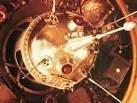
Luna program |
Luna program (astronomy and space ) Luna program: The Soviet Union lands Lunokhod 1 on Mare Imbrium (Sea of Rains) on the Moon. This is the first roving remote-controlled robot to land on another world and was released by the orbiting Luna 17 spacecraft. |
|
17 Nov 1970
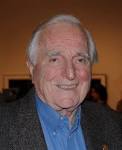
Douglas Engelbart |
Douglas Engelbart (computer science) Douglas Engelbart receives a United States patent for the first computer mouse. |
|
30 Nov 1970
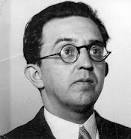
Alfonso Caso y Andrade |
death Alfonso Caso y Andrade Died 30 Nov 1970 at age 74 (born 1 Feb 1896). Mexican archaeologist and government official who explored the early Oaxacan cultures and is best remembered for his excavation of Tomb Seven at Monte Albán, the earliest-known North American necropolis. His first book, El mapa de Teozacoalco, (1949), is a key to Mixtec history. For 40 years, he studied prehispanic writing, striving to decipher the forgotten inscriptions. His most famous work, Kings and Kingdoms of the Mixteca, was finished only a few days before he died in 1970. |
|
08 Dec 1970
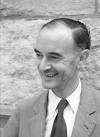
Christopher Kelk Ingold |
death Christopher Kelk Ingold Died 8 Dec 1970 at age 77 (born 28 Oct 1893). British chemist. |
|
08 Dec 1970
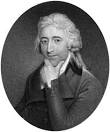
Philip Edward Smith |
death Philip Edward Smith Died 8 Dec 1970 at age 86 (born 1 Jan 1884). American endocrinologist who demonstrated the importance of the pituitary. Beginning in 1916, often collaborating with his wife, Smith set out to study the embryonic frog pituitary. He painstakingly made the microinstruments needed to operate on the pituitary anlage (bud) of the 4-mm tadpole. In 1926, he fashioned a minute pipette to remove the rat pituitary by suction without damage to the brain. He showed that such “hypophysectomy” resulted in the cessation of growth and atrophy of the other adrenal glands, such as the thyroid, the adrenal cortex, and the reproductive glands. Smith was thus able to study “pure” hypopituitarism and hormone replacement therapy and to publish a paper immediately recognized as classic. |
|
29 Dec 1970

William King Gregory |
death William King Gregory Died 29 Dec 1970 at age 94 (born 19 May 1876). American palaeontologist who specialized in anatomy and particularly in dentition (the development of teeth), in fish and mammals. In 1899, he was invited by Dr. Henry Fairfield Osborn and joined the staff of the American Museum of Natural History, New York. Over the years Dr. Gregory planned and supervised a number of exhibitions for the museum. These included one on men of the Stone Age, completing the Hall of Fishes of the World, and one on anatomy that illustrated the evidence of man's origin from lower members of the order of primates. He published extensively during five decades. His books include Our Face From Fish to Man (1929) and Evolution Emerging (1951). |